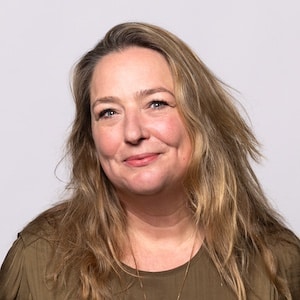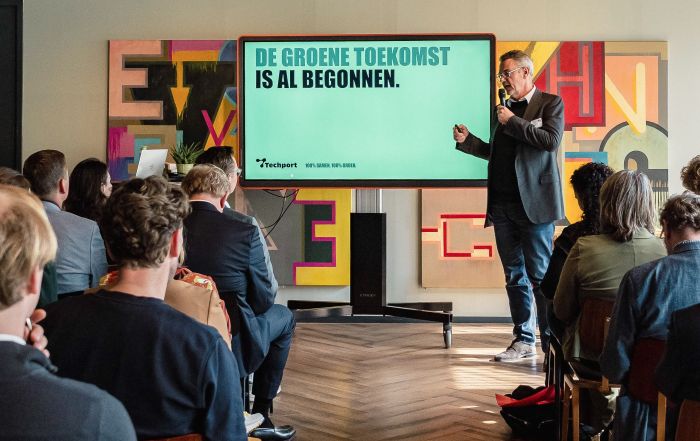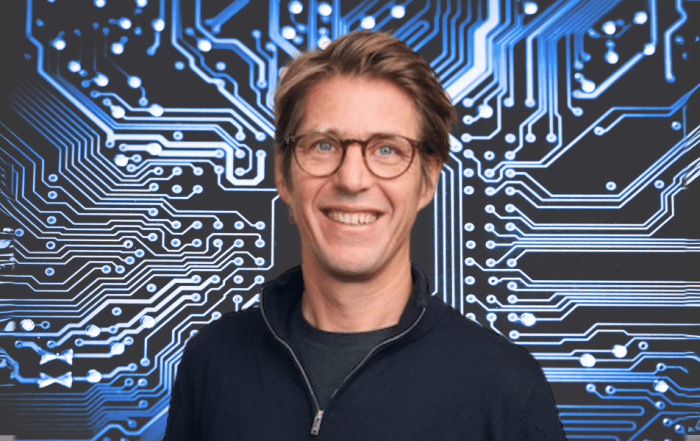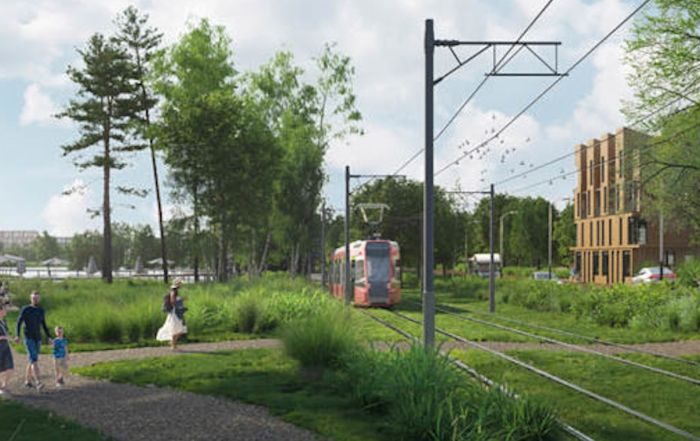Eva Klein Schiphorst (SADC): ‘We develop working landscapes where nature and activity reinforce each other’
With a clear vision of the future, SADC is developing the working landscapes of the future in the Schiphol region. As a new partner of Amsterdam Economic Board, the organization fits in seamlessly with our healthy, innovative and sustainable ambitions. Director Eva Klein Schiphorst: "We want to show that logistics, climate adaptation and biodiversity can actually reinforce each other."
Working at SADC , according to Klein Schiphorst, is the best of the two worlds she knows well: government and business. After all, SADC is a company that needs to show entrepreneurship. But with the municipalities of Haarlemmermeer and Amsterdam, the province of North Holland and Schiphol as equal shareholders, maximum financial return is not the highest goal. “We are a financially healthy company: we own land and sell it. But because our shareholders are not exclusively financially driven, in our working landscapes, we can also pay attention to ecology and livability. That’s how we like to develop business parks.”
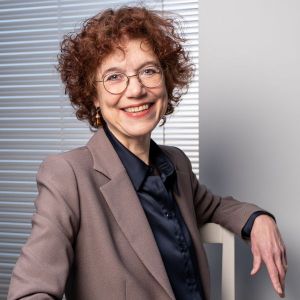
Eva Klein-Schiphorst
Klein Schiphorst became managing director of SADC three years ago. She worked in government for more than 20 years, including as director of the Government Real Estate Service. And between 2017 and 2022, she worked at Royal HaskoningDHV, as director of Business Unit Public. “So I sat on both sides of the table and saw on both those sides that there is often too little recognition of the interests of the other side. Business is the basis of income in the Netherlands. The government that guarantees that things are done carefully, that the law of the jungle does not apply. That is why I am so happy with my current role, in which I contribute to the connection between the government and the market. This is necessary to move forward.”
Strengthen biodiversity
And that’s exactly where the match with Amsterdam Economic Board is, Klein Schiphorst explains. “The themes of Amsterdam Economic Board fit seamlessly with what we are already doing in practice.” Take the land that SADC is developing in the area around Schiphol. Usually this is former agricultural land. “It is land that has been depleted for years with all kinds of pesticides, where there is hardly any biodiversity left. If we are going to develop those, we want biodiversity to improve. That means that as a buyer you cannot just put up a concrete colossus, but take responsibility for preserving and strengthening biodiversity. We ask the companies to invest in ecology and calculate whether that indeed has the desired effect.”
Cooperation with education plays an important role in this. SADC aims to become a recognized internship site for MBO graduates, regularly has work students and college graduates, and also collaborates with the nature education group IVN within the research and innovation program Work Landscapes of the Future.
Digital twins
The plans of all organizations buying one or more plots in a SADC area are carefully reviewed. In fact, SADC has a so-called digital twin of each area. “We measure the ecological zero situation and then simulate how a building design affects biodiversity, noise or particulate matter. This allows us to make binding agreements with companies about their contribution to nature and quality of life.”
One of the major challenges for business activity in the region is grid congestion. At Schiphol Trade Park, SADC developed a unique solution for this with various partners: the Energy Hub. This is a virtual network shared by twelve companies. “Only four of those companies have a connection to the electricity grid and in our virtual environment we keep track of exactly who consumes what. In the three years this has been running we have only had to call on our backup three times, but that went without a hitch. To me, this is a good example of how to solve a big challenge. Collaboration is key.”
Restoring confidence
There Klein Schiphorst immediately touches on one of the major challenges facing the region as far as she is concerned. “Our society is becoming increasingly individualized; it is often every man for himself. Our biggest challenge is to bring back the trust in each other and to scale back the self-interest sometimes a notch. This is not always easy. We too sometimes encounter resistance from potential customers. For example, one of our international clients at Schiphol Trade Park was initially hesitant about the requirements we set for their building. They are now immensely proud of it – and use it as an example worldwide.”
Another challenge for the region that SADC wants to actively contribute to is attracting the right parties. “As the Metropolitan Region, we don’t want to attract parties who want to put something up as cheaply as possible and without regard to anything. We select companies based on their fit with the vision, core values and future-proof ambitions of the area. And that is why we also want to be involved in Amsterdam Economic Board: this way we can not only think along about what is important for the region, but also show the network that these goals are actually achievable. Our areas, two of which already have BREEAM-NL Outstanding certification, are a good example of this.”
Written by: Mirjam Streefkerk
Image: SADC
Interested in partnering with us?
Check out the partners we are working with to build a future-proof regional economy.
And read more about the benefits for partners in our network. Relationship Manager Marjan Schrama is happy to tell you more.
5 August 2025
Read more about
Contact us
Want to keep up to date?
Get the best regional news and events (in Dutch) via the Board Update newsletter
Share this news
Want to keep informed?
Follow us daily on LinkedIn and sign up for the Board Update newsletter.
Read more
- What is the Amsterdam Metropolitan Area’s position on critical raw materials? ...
- Preparations for the National Zorginnovatieprijs 2026 by Zorginnovatie.nl are underway, and registration ...

